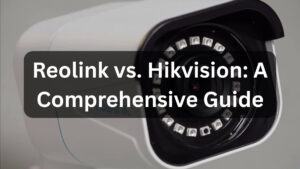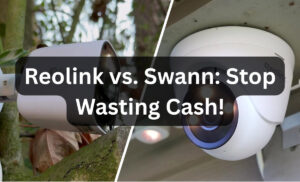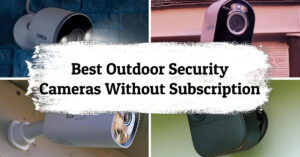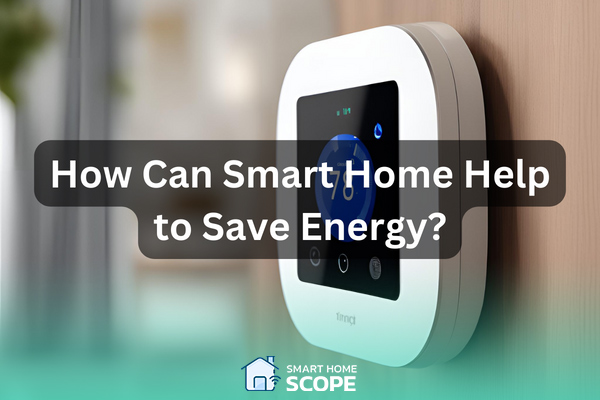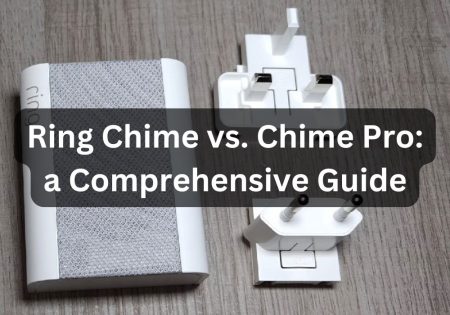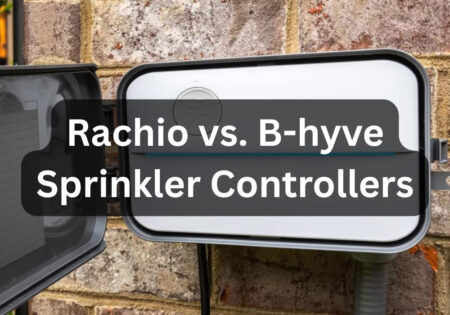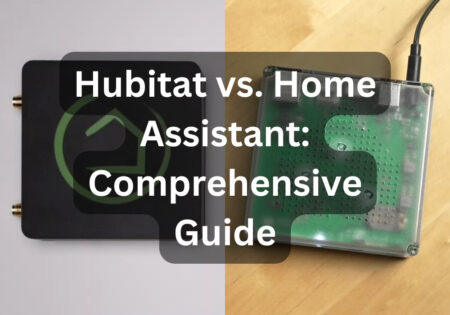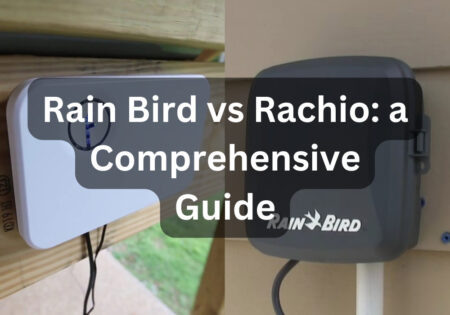Got a smart setup and wondering, how can a smart home help to save energy? In every smart home setup, there are devices that save energy; these gadgets simplify and optimize our everyday routines, which in turn makes energy conservation easier. These innovations, such as thermostats that learn from our behaviors or clever lighting systems that change automatically based on usage, let us make wiser decisions while still being comfortable.
How Can Smart Home Help to Save Energy? The Key Takeaway!
There are smart devices that save energy in a smart home setup; these gadgets can maintain the energy efficiency of your smart home. Some of the most important energy-efficient smart gadgets are:
- Smart Thermostats & HVAC Control: Smart thermostats learn about your routines and adjust the heating and cooling of your living space accordingly, optimizing energy consumption throughout the day.
- Smart Lighting Solutions: Smart lighting devices can reduce electricity usage by learning about your activity patterns and turning off the lights when not needed. You can also control them remotely.
- Smart Water Management: Leak detectors and smart water valves prevent water waste and damage by detecting leaks and shutting off the water automatically. Smart sprinklers adjust water usage based on weather and soil moisture.
- Energy Management Through Smart Appliances: Smart home appliances, such as smart refrigerators, optimize their performance for maximum energy and water efficiency.
- Solar Panels: Utilizing solar panels can significantly reduce energy consumption and reliance on the grid.
Moving forward, we’ll go through each of these energy-efficient devices to learn more about them.
Best Smart Devices that Help to Save Energy in 2024
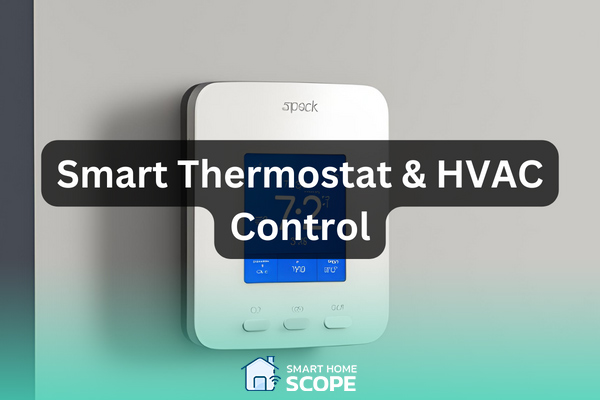
Smart Thermostats and HVAC Control
One of the coolest home automation gadgets out there is the smart thermostat. The way my home’s heating and cooling systems operate has been completely transformed by it. These smart thermostats ensure my comfort by adjusting to my desired temperature and daily schedule while using less energy.
Not only do these smart gadgets regulate temperature, but they also understand my routines and my home’s unique thermal characteristics, reducing the amount of energy I consume unnecessarily. For instance, they could turn down the heat when I’m not home and rewarm it right before I arrive to reduce energy waste.
It goes beyond simply managing temperature. I can make better decisions about heating and cooling since many smart thermostats provide me with comprehensive information about how much energy I use. By being proactive, I not only save money but also improve the comfort and environmental friendliness of my house, helping me to have a robust energy efficiency smart home!
Nestled within the realm of home automation lies the luminary: the sentient thermostat, a celestial presence that orchestrates a symphony of temperature, redefining the essence of my dwelling’s thermal equilibrium.
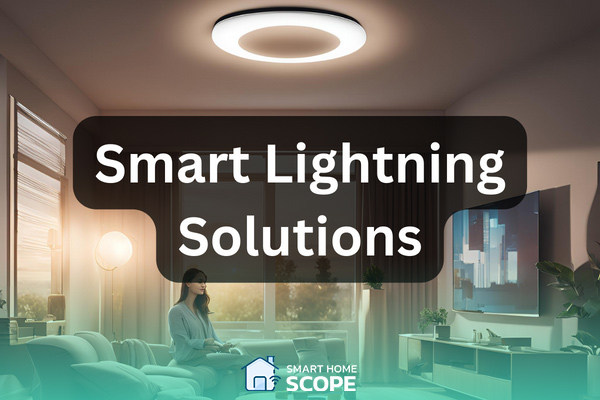
Smart Lighting Solutions
When it comes to having an energy efficiency smart home, smart lighting options are essential for cutting down on electricity use and improving convenience. I can now remotely manage my lighting using smart switches and bulbs, using voice commands, my smartphone, or connection with other smart devices. These smart LED bulbs are an excellent investment for sustainable living because they not only use less energy than conventional ones but also have a much longer lifespan.
The programmability of these smart lighting solutions is what really sets them apart. I can program my lights to come on and off on schedule, adjust them to the amount of natural light in my house to prevent needless lighting during the day, or even set them up to react to activity in my house. This degree of personalization ensures that energy isn’t wasted in empty areas, which boosts productivity and lowers expenses.
Furthermore, my home’s general functionality is improved when smart lighting systems are integrated with other smart home appliances. For example, I may increase energy efficiency, boost convenience, and enhance home security by syncing my lights with motion sensors and security systems. These networked features, which can simulate occupancy while I’m gone for extra security or light paths when motion is detected, not only reduce energy use in my home but also better suit my lifestyle requirements.
Smart Water Management
For my smart home to operate as efficiently as possible, water management must be done well. Leak detectors and smart water valves are essential tools for keeping an eye on water usage and avoiding waste.
Leak detectors positioned strategically serve as watchful guardians, quickly alerting me to even the smallest water breaches. Thanks to this early detection, I can address concerns before they become more serious and prevent damage to my home.
Through their automatic shut-off of the water supply upon detection of a leak, smart water valves further improve my efforts at water management. This preventative approach saves money on water-related calamities and minimizes water waste, protecting my house and giving me peace of mind.
Smart sprinkler systems for the outdoors drastically reduce water consumption by modifying watering schedules in response to current weather conditions and soil moisture content. By doing this, I can make sure that my plants get just the right amount of water—without any extra runoff or waste—to grow. By preserving water in my outdoor areas, I support sustainable living methods and a healthy ecosystem.
Energy Management Through Smart Appliances
In order to keep my house energy efficient, smart appliances are essential. These smart appliances are made to run more efficiently, using less water and electricity because they are outfitted with sensors and internet access.
Consider my intelligent refrigerator, which does more than merely maintain food’s chilly temperature. It helps cut down on energy waste by alerting me when the door is left open. Efficient use of water and energy is guaranteed by my intelligent washing machine, which modifies its cycles according to the size of the laundry load.
My attempts at energy management are further enhanced by using smart plugs, which give me the ability to regulate the power usage of different gadgets. I can arrange when my devices switch on and off with smart plugs, reducing the amount of energy lost while they are idle.
In addition, many of these smart gadgets offer thorough insights into my energy usage habits. I can pinpoint the locations where I’m consuming the most energy and make changes to further maximize efficiency by evaluating this data. By being proactive in making gradual improvements to my home’s energy efficiency, I will ultimately lower my power costs and environmental impact.

Making an Energy Efficiency Smart Home with Solar Panels
With the addition of solar panels, my smart home system will be far more energy-efficient and sustainable. By turning sunlight into electricity, solar panels help me use less conventional energy, reducing my carbon emissions and utility bills.
When connected, my solar panels and smart home system can work together to minimize my dependency on the grid and utilize solar energy when it is available. Furthermore, many smart technologies provide real-time feedback on the amount of energy I use and produce, which helps me use energy more wisely.
Conclusion
So, I hope that now you know how can smart home help us save energy! Using smart home technology gives me a significant opportunity to increase energy efficiency and save costs. My home’s energy usage habits can be greatly improved by integrating these smart gadgets with ease, which not only helps me save money but also contributes to a more sustainable future.
FAQs
How much can I save with a smart thermostat?
On average, smart thermostats can save up to 20% on heating and cooling bills annually.
Are smart bulbs worth the investment?
Yes, smart bulbs use up to 75% less energy and last 25 times longer than incandescent bulbs.
Can smart devices really detect leaks?
Yes, smart leak detectors can identify even minor leaks early, preventing major water damage and waste.
Is it expensive to integrate solar panels with a smart home?
Initial costs are high, but long-term savings on energy bills and tax incentives can offset the expense.
